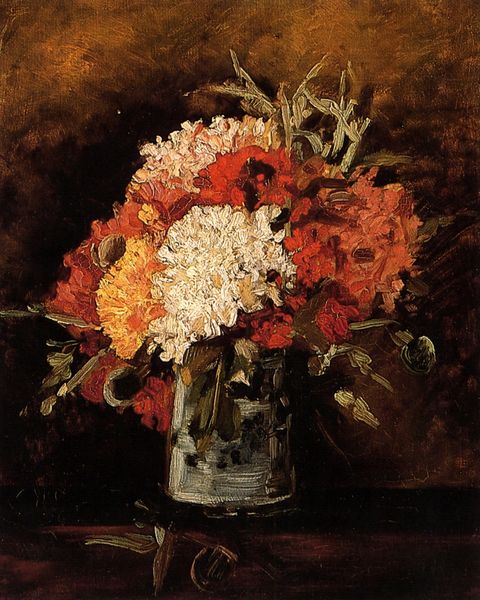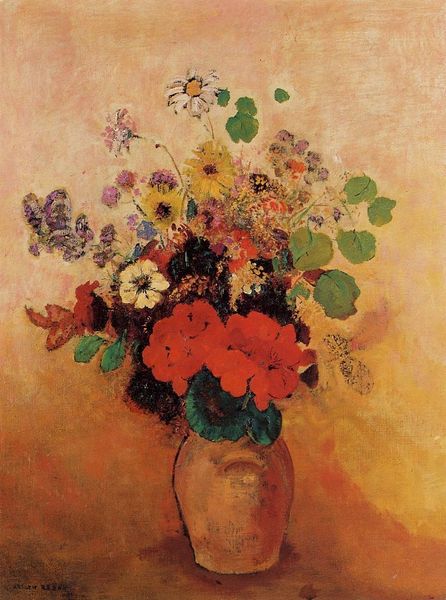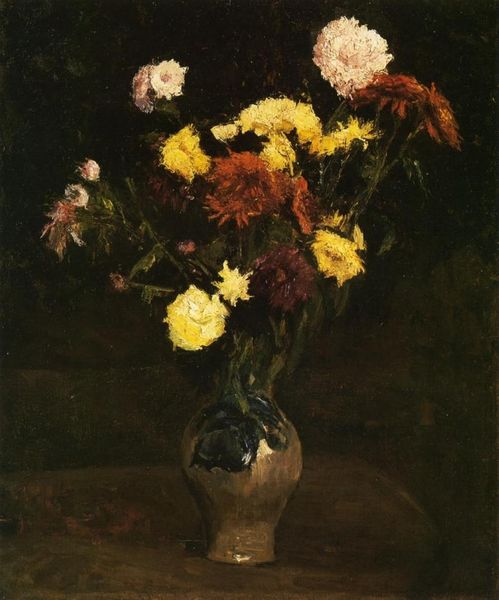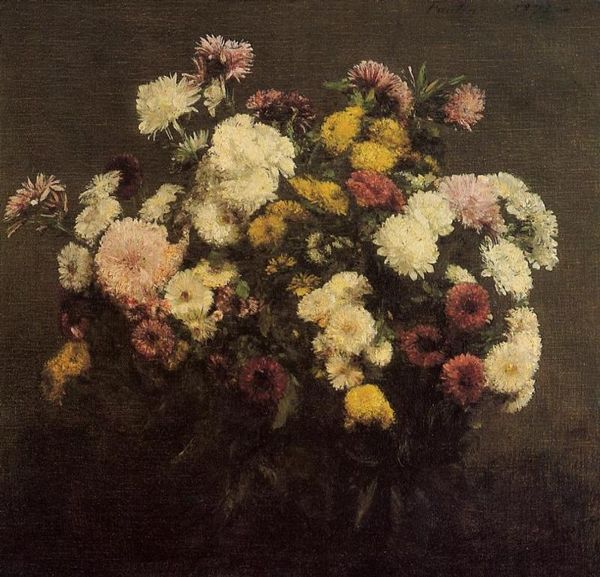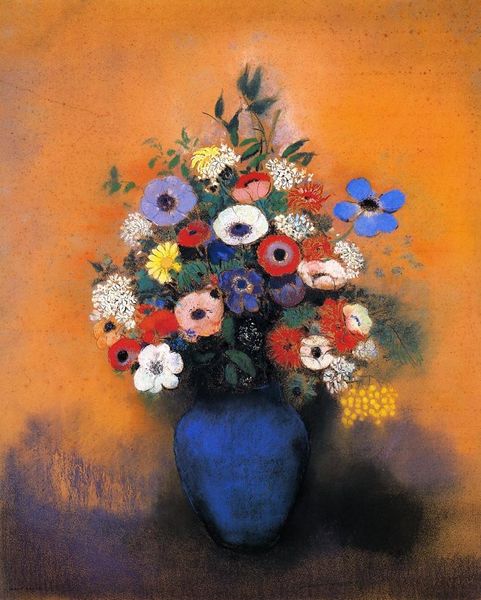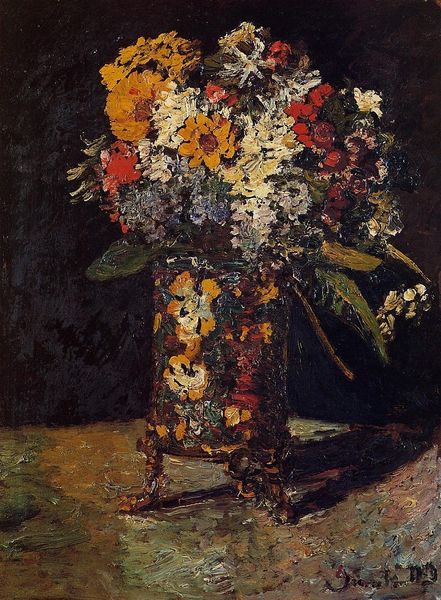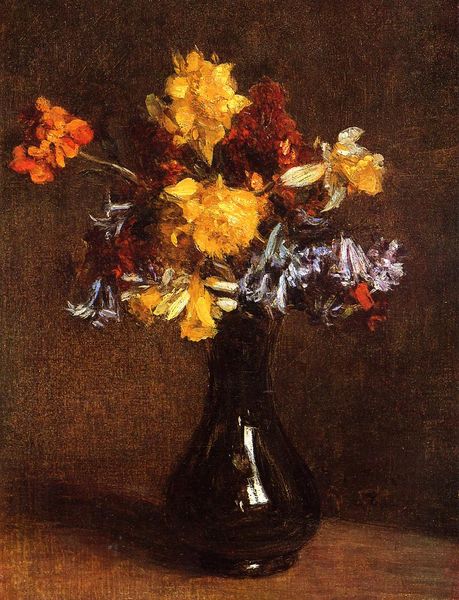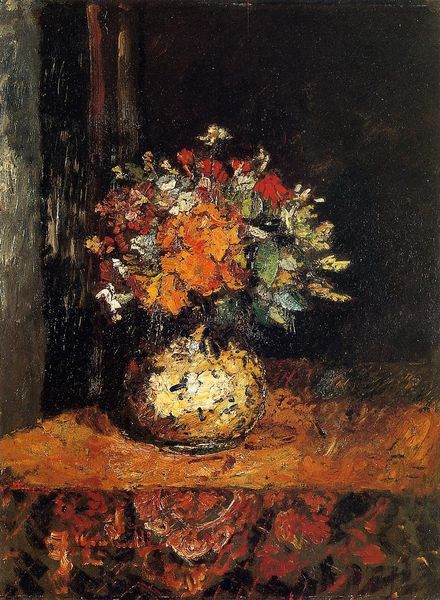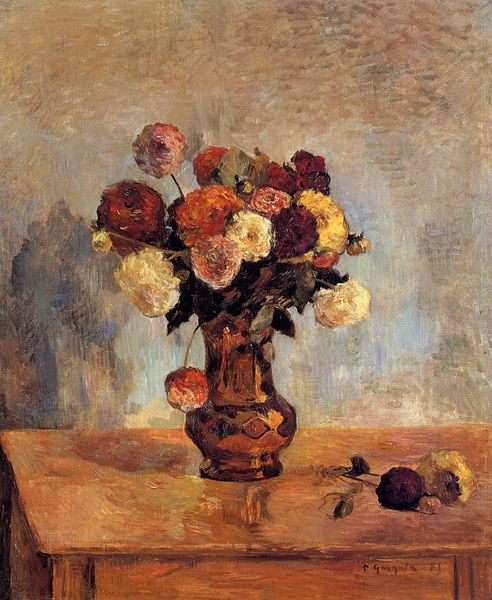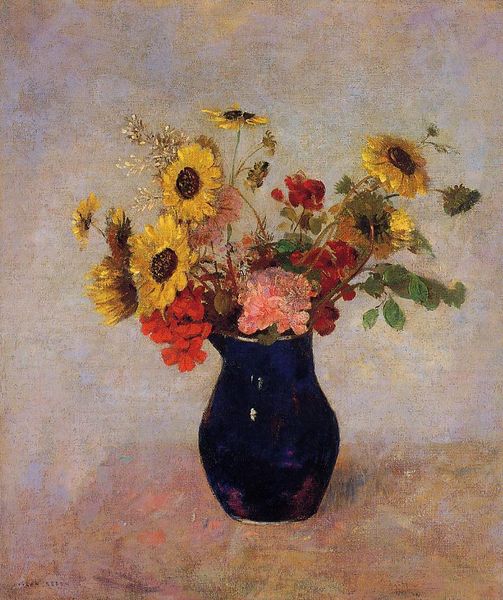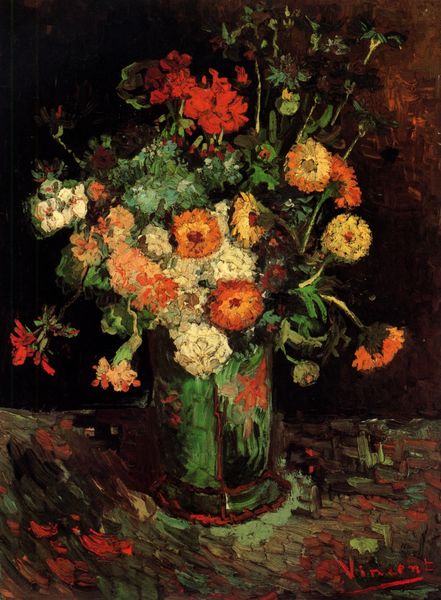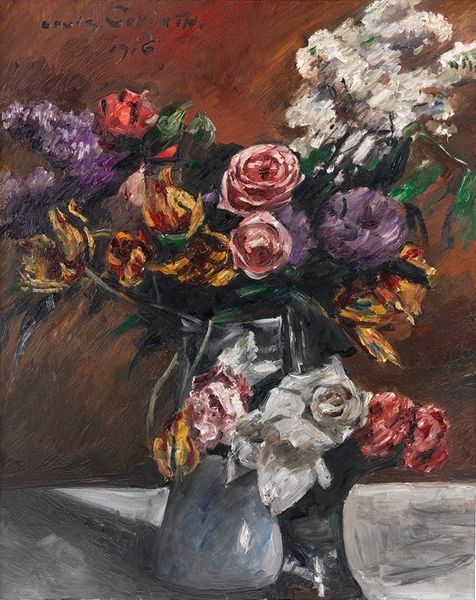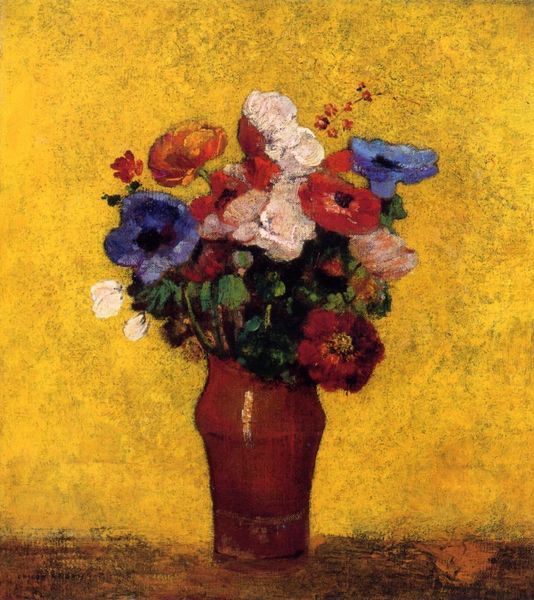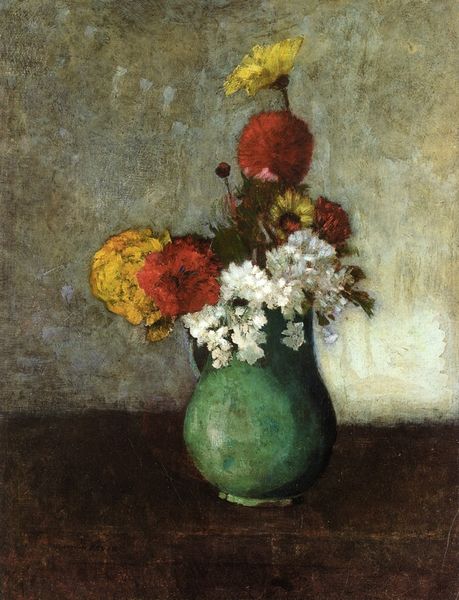
painting, oil-paint
#
portrait
#
painting
#
impressionism
#
oil-paint
#
oil painting
#
geometric
#
post-impressionism
Copyright: Public domain
Editor: We're looking at "Dahlias in a Delft Vase" by Paul Cézanne, painted around 1885. It's an oil painting, and the first thing that strikes me is how vibrant the colours are, especially the contrast between the red flowers and the patterned vase. What do you see in this piece? Curator: Beyond the aesthetic appeal, the image acts as a vessel filled with visual memory. Cézanne uses dahlias, a relatively new flower in European gardens at the time, paired with a Delft vase which symbolizes a Dutch Golden Age. The pairing brings the new and the old together in one concentrated burst of imagery, almost inviting us to explore the cycle of artistic innovation and memory. What do you make of the seemingly unbalanced composition? Editor: I hadn’t thought about it like that. It feels top-heavy, like it might topple over, but the colours hold it together. Curator: The precarious nature is precisely the point. Cézanne is acutely aware of his break from the established tradition, but this conscious move helps viewers question the established idea, and further search for symbolism from art as the reflection of emotional and spiritual values, what do you think? Editor: It’s almost like he’s saying that new traditions must both acknowledge and challenge the past. Curator: Precisely! And isn't it fascinating how a simple floral arrangement can evoke such complex cultural and psychological echoes? Editor: Absolutely. I never thought a vase of flowers could hold so much history! Curator: And that’s the magic of images, isn't it? They are never simply what they seem.
Comments
No comments
Be the first to comment and join the conversation on the ultimate creative platform.
